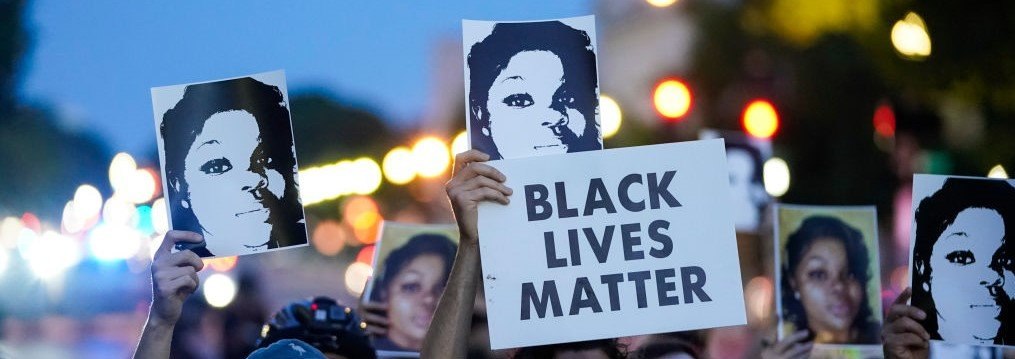During the first presidential debate, President Donald Trump and Democratic presidential nominee Joe Biden sparred over the role of the police and the nationwide protests that occurred in response to the killing of black Americans by police.
American voters tend to think police use of force was not justified in the killings of both Breonna Taylor, during a no-knock search in Louisville, and George Floyd in Minneapolis.
Among the President’s voters, however, this is only true in the case of Floyd, and by a relatively small margin (45% not justified vs 36% justified, compared to 71% vs 17% among all voters).
Many voters think that race played a role in both Taylor’s and Floyd’s deaths, but much more so in the killing of Floyd, which was recorded on video (and which many have seen).
In the case of Taylor, 44% of registered voters believe she would not have been killed had she been white, 37% disagree. By nearly two to one (54% to 28%) the electorate believe Floyd too would not have been killed had he been white.
This view is particularly common among Black voters, with at least four in five who say Taylor (80%) and Floyd (85%) would not have been killed by police if they were white. About three-quarters of Biden supporters agree that race played a role in Taylor (76%) and Floyd’s (87%) deaths, while few Trump supporters (9% and 16%) agree.
By more than three to one, voters approve of the murder charges that were brought against the police officer who knelt on George Floyd’s neck.
In comparison, only half of voters (50%) say a grand jury in Louisville was too lenient in indicting one of the police officers involved in the shooting of Breonna Taylor. The officer was charged with three counts of first-degree wanton endangerment for endangering the lives of Breonna Taylor’s neighbors. Other officers who were at the scene are not facing charges at all.
About a quarter (23%) say the indictment for wanton endangerment was about right. Black voters are about twice as likely (80%) as white voters (41%) to say the charges were too lenient.
See the toplines and crosstabs from this week’s Economist/YouGov Poll
Methodology: The Economist survey was conducted by YouGov using a nationally representative sample of 1,500 registered voters interviewed online between September 27 – 30, 2020. This sample was weighted according to gender, age, race, and education based on the American Community Survey, conducted by the US Bureau of the Census, as well as 2016 Presidential vote, registration status, geographic region, and news interest. Respondents were selected from YouGov’s opt-in panel to be representative of all US citizens. The margin of error is approximately 3.8% for the overall sample.
Image: Getty









